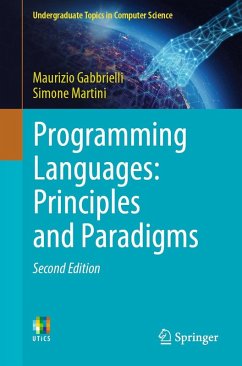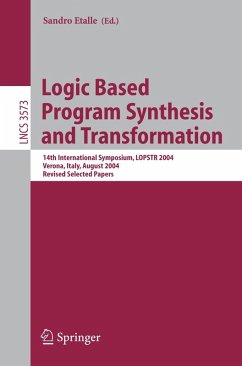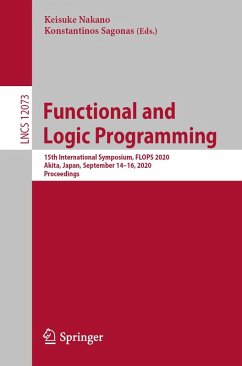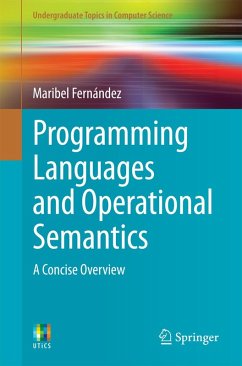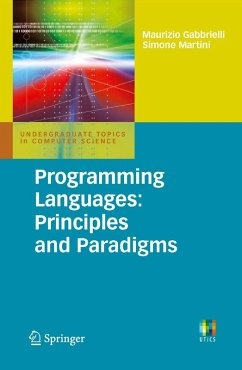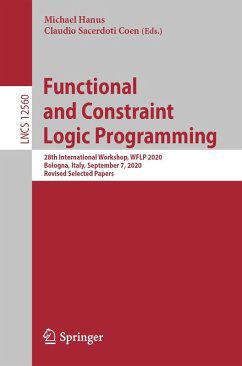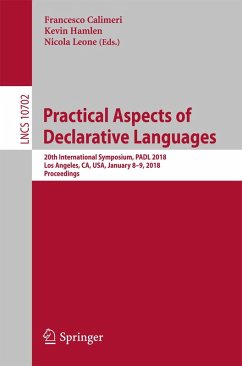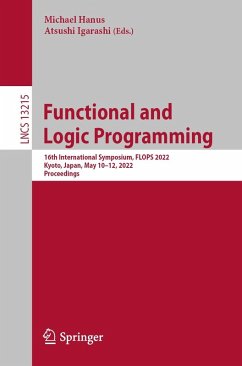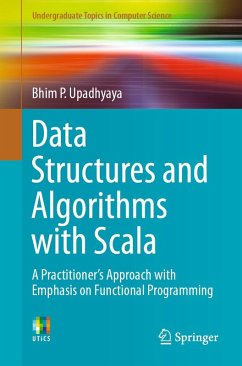
Compiler Design (eBook, PDF)
Virtual Machines
Versandkostenfrei!
Sofort per Download lieferbar
40,95 €
inkl. MwSt.
Weitere Ausgaben:

PAYBACK Punkte
20 °P sammeln!
While compilers for high-level programming languages are large complex software systems, they have particular characteristics that differentiate them from other software systems. Their functionality is almost completely well-defined - ideally there exist complete precise descriptions of the source and target languages, while additional descriptions of the interfaces to the operating system, programming system and programming environment, and to other compilers and libraries are often available. The implementation of application systems directly in machine language is both difficult and error-p...
While compilers for high-level programming languages are large complex software systems, they have particular characteristics that differentiate them from other software systems. Their functionality is almost completely well-defined - ideally there exist complete precise descriptions of the source and target languages, while additional descriptions of the interfaces to the operating system, programming system and programming environment, and to other compilers and libraries are often available. The implementation of application systems directly in machine language is both difficult and error-prone, leading to programs that become obsolete as quickly as the computers for which they were developed. With the development of higher-level machine-independent programming languages came the need to offer compilers that were able to translate programs into machine language. Given this basic challenge, the different subtasks of compilation have been the subject of intensive research since the 1950s.
This book is not intended to be a cookbook for compilers, instead the authors' presentation reflects the special characteristics of compiler design, especially the existence of precise specifications of the subtasks. They invest effort to understand these precisely and to provide adequate concepts for their systematic treatment. This is the first book in a multivolume set, and here the authors describe what a compiler does, i.e., what correspondence it establishes between a source and a target program. To achieve this the authors specify a suitable virtual machine (abstract machine) and exactly describe the compilation of programs of each source language into the language of the associated virtual machine for an imperative, functional, logic and object-oriented programming language.
This book is intended for students of computer science. Knowledge of at least one imperative programming language is assumed, while for the chapters on thetranslation of functional and logic programming languages it would be helpful to know a modern functional language and Prolog. The book is supported throughout with examples, exercises and program fragments.
This book is not intended to be a cookbook for compilers, instead the authors' presentation reflects the special characteristics of compiler design, especially the existence of precise specifications of the subtasks. They invest effort to understand these precisely and to provide adequate concepts for their systematic treatment. This is the first book in a multivolume set, and here the authors describe what a compiler does, i.e., what correspondence it establishes between a source and a target program. To achieve this the authors specify a suitable virtual machine (abstract machine) and exactly describe the compilation of programs of each source language into the language of the associated virtual machine for an imperative, functional, logic and object-oriented programming language.
This book is intended for students of computer science. Knowledge of at least one imperative programming language is assumed, while for the chapters on thetranslation of functional and logic programming languages it would be helpful to know a modern functional language and Prolog. The book is supported throughout with examples, exercises and program fragments.
Dieser Download kann aus rechtlichen Gründen nur mit Rechnungsadresse in A, B, BG, CY, CZ, D, DK, EW, E, FIN, F, GR, HR, H, IRL, I, LT, L, LR, M, NL, PL, P, R, S, SLO, SK ausgeliefert werden.



